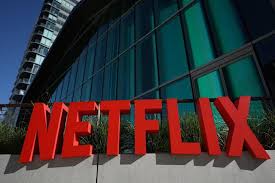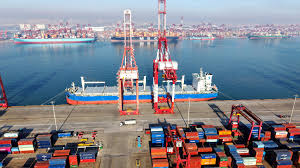
This picture taken on April 24, 2020 shows a sign of the World Health Organization (WHO) in Geneva next to their headquarters, amid the COVID-19 outbreak, caused by the novel coronavirus.
Fabrice COFFRINI / AFP
A WHO expert sent to China to probe the coronavirus hit out at US intelligence on Covid-19 as his team headed home with few answers about the origin of a pandemic that was forcing more clampdowns in some of the hardest-hit parts of the world.
German Chancellor Angela Merkel was set to seek an extension of strict virus curbs, as the European Commission chief prepared to defend the stumbling vaccination rollout in the continent — which accounts for a third of the 2.3 million Covid-19 deaths worldwide.
The coronavirus has infected close to 107 million people, devastating the global economy, and questions over the handling of the initial outbreak in central China sparked an intense diplomatic row between Washington and Beijing.
The WHO mission to the ground zero city of Wuhan wrapped up Tuesday without any concrete answers, with Washington again expressing scepticism about China’s transparency and cooperation.
But WHO team member Peter Daszak tweeted: “Please don’t rely too much on US intel: increasingly disengaged under Trump & frankly wrong on many aspects.”
He said they worked “flat out under the most politically charged environment possible”.
China had repeatedly delayed the WHO trip, and bristled at accusations of a lack of transparency. Beijing warned Washington not to “politicise” the mission after the White House demanded a “robust” probe.
State Department spokesman Ned Price said Tuesday that the United States supports the investigation. But when asked if China had fully cooperated with the WHO, he said: “The jury’s still out.”
The WHO team did not identify which animal transferred the coronavirus to humans, but said there was no indication it was circulating in Wuhan before December 2019, when the first official cases were recorded.
WHO expert Peter Ben Embarek also scotched the controversial theory that the virus may have leaked from a lab in Wuhan.
– Vaccine, surge worries in Europe –
European Commission President Ursula von der Leyen was due to explain the EU’s vaccine strategy to the European Parliament in Brussels on Wednesday, with the bloc’s leadership under growing pressure.
Vaccine supply issues have already caused a diplomatic row after AstraZeneca said it would not be able to immediately ship the doses it promised to Britain and the EU.
At the same time, the resurgence of infections across the continent is adding to the pressure on its leadership.
A stricter lockdown will be imposed in Greece from Thursday — in particular in the Athens region — as Prime Minister Kyriakos Mitsotakis warned that his country was facing a third Covid-19 wave.
Wary of infection numbers exploding again, German Chancellor Angela Merkel will seek to extend strict curbs at least until the end of February as fatigue grows with the partial lockdown in Europe’s top economy.
Immunisation efforts are being ramped in other parts of the world with a number of vaccines.
Peru on Tuesday began administering shots developed by China’s Sinopharm, while Argentina approved the Indian-made version of the AstraZeneca vaccine.
South Korea on Wednesday also authorised the AstraZeneca shot for people aged 18 and above, including over-65s.
A number of European countries have not authorised the AstraZeneca vaccine for the elderly — considered the demographic most vulnerable to Covid-19.
Japan will start vaccinations next week — most likely the Pfizer/BioNTech jab — but it is scrambling to secure suitable syringes so doses won’t go to waste.
– Valentine’s Day worries –
Along with mass vaccinations, researchers and engineers around the world are searching for other ways to help end the pandemic and return life to normal — especially international travel.
Tech-savvy Estonia is working on a pilot project with the WHO on how a globally recognised electronic vaccine certificate might work, including addressing concerns about security and privacy.
A more immediate concern for authorities in many countries this week is Valentine’s Day, with fears that the upcoming celebrations could lead to a surge in infections.
Authorities in Thailand’s capital Bangkok announced the city would not register marriages on Valentine’s Day, a popular day for weddings.
In Brussels, however, where restaurants are closed, some hotels have converted rooms into private dining salons for two.
“We’re over the moon about being here tonight, just like in a restaurant,” said Marine Deroo, a 34-year-old who tried out the concept ahead of Valentine’s Day.
-CHANNELSTV















